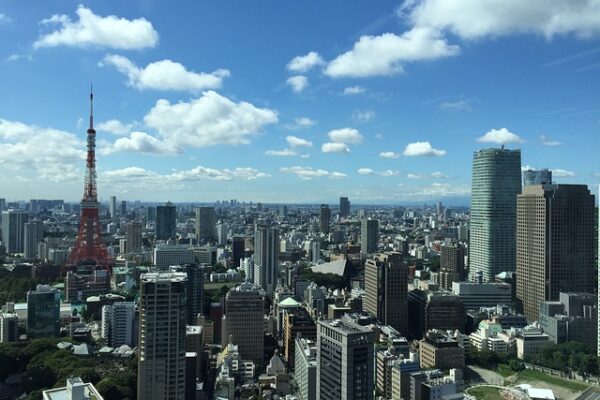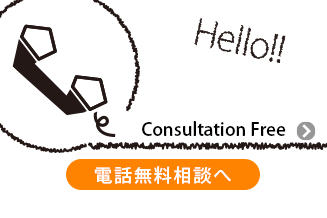Privileged measures for Highly Skilled Professionals for PR application

2022,06,02
We would like to explain about “Highly Skilled Professionals” and the preferential treatment of highly skilled personnel.
This article in Japanese 在留資格「高度専門職」は永住申請も優遇される? 優遇措置と高度人材のポイント制をわかりやすく解説
Related article Permanent Residency Application for Highly Skilled Professionals
What are “Highly Skilled Professionals”?
“Highly Skilled Professionals” are defined as “foreign nationals who possess advanced knowledge and skills”. Since Japan is not the only country in need of such human resources, there is competition for them internationally. The Japanese government also wants to accept these personnel because it expects them to further expand business with foreign countries, contribute to innovation through research and development, and play active roles in a variety of fields. To invite those highly skilled personnel, in May 2012, the government implemented preferential immigration control measures and introduced the “Advanced Human Resources Point System” to promote the acceptance of foreigners with advanced skills who are expected to contribute to economic growth and other areas. (Status of residence was “Designated Activities”) Following the amendment of the Immigration Control Act in 2014, the “Highly Skilled Professionals” status of residence was newly established in April 2015, which is specifically for highly skilled personnel, and various preferential measures have been established for particularly outstanding foreign human resources.
According to the Immigration Services Agency of Japan, the number of “Highly Skilled Professionals” No. 1, No. 2, and “specified activities (highly skilled personnel)” residents at the end June 2021 was 15,891.
There are three types of “Highly Skilled Professionals No.1” visas depending on the type of activity.
- Highly Skilled Professional (i) (a) Advanced academic research activities : Either participating in, overseeing, or directing a research project through a contract with a public or private organization in Japan.
e.g. “Professor” and “Researcher” - Highly Skilled Professional (i) (b) Advanced specialized/technical activities : Activities being performed through a contract with a public or private organization in Japan which require specialized skills or knowledge in natural sciences or humanities. e.g.”Engineer/Specialist in Humanities/International Services” “Intra-company transferees,” etc.
- Highly Skilled Professional (i) (c) Advanced business and management activities : Either directly managing or overseeing the management of a public or private Japanese company.
e.g. “Business manager”
What is the Points Calculation System?

This is a system to promote the acceptance of foreign nationals who are recognized as “highly skilled foreign human resources” into Japan through a system called the “point system,” which is a privileged immigration/ management system based on points for highly skilled professionals.
The requirement for obtaining “highly skilled professional” status of residence is to obtain 70 points or more under the Point Calculation System. The Point System is divided into three categories: Advanced academic research activities, Advanced specialized/technical activities and Advanced business and management activities field. Points are awarded for each category, including academic background, work experience, annual income, and age, and those who reach a total of 70 points or more are certified as “Highly Skilled Professionals.
In addition, there is a minimum annual income standard for “Highly Skilled Professionals 1 (b)” and ” Highly Skilled Professionals 1 (c)”, which requires an annual income of at least 3 million yen.
Please refer to the point calculation chart here for more information on each point. Highly Skilled Worker Point System
N2 on the Japanese Language Proficiency Test (JLPT) or a score of 400 on the BJT Business Japanese Proficiency Test (BJT) is also subject to the point system.
Reference
Universities eligible for points based on the World University Rankings
List of Universities as specified by the Minister of Justice in the Point Calculation Table
Seven privileged measures

There are two types of Highly Skilled Professionals: No. 1 and No. 2.
Let’s take a look at the details of each preferential treatment.
Highly Skilled Professionals No.1
1.Permission to engage in multiple residence activities
Normally, foreign nationals are only allowed to engage in activities permitted under one status of residence. For example, a person with an “Engineer/Specialist in Humanities/International Services” visa cannot also work as a cook (= “Skilled Labour” visa).
Highly Skilled Professionals can engage in activities that span multiple statuses of residence, such as conducting activities to manage a related business with research activities at a university.
2.Granting a “5-year” period of stay
Highly Skilled Professionals are granted a status of residence for a maximum period of “5 years,” which is the maximum period allowed by law.
In the case of work visas such as an “Engineer/Specialist in Humanities/International Services” visa, “5 years is rarely granted at the time of first application for status of residence, and usually it takes several renewals before “5 years” is finally granted.
3.Relaxation of Requirements for Permanent Residence Application
One of the conditions for obtaining a permanent residence permit is to have lived in Japan for 10 years or more, but if you have been engaged in activities as a Highly Skilled Professionals for 3 years, or if you are recognized as particularly advanced among Highly Skilled Professionals (80 points or more in the point calculation), you may be eligible for a permanent residence permit after 1 year of continued activities as a Highly Skilled Professionals. This is a big advantage for those considering applying for permanent residence.
4.Spouse’s employment
Spouses of foreign nationals staying in Japan on a work visa (i.e., “Dependent Visa”) are not normally allowed to work. They are allowed to work part-time up to 28 hours per week with “permission to engage in activities other than those permitted under the status of residence”. On the other hand, spouses of high-level foreign human resources can engage in activities that fall under the status of residence such as “Engineer/Humanities/International Services” with the status of residence of “Specially Designated Activities” even if they do not meet the requirements for academic and work experience.
*The spouse must live with a highly skilled professional and receive income equivalent to or greater than that of a Japanese national.
5.Able to invite parents under certain conditions
In principle, foreign nationals living in Japan on a work visa cannot invite parents of foreign nationals to live in Japan.
Meanwhile,
(1) When taking care of a child (including an adopted child) under 7 years of age of a Highly Skilled Professionals or his/her spouse
(2) When assisting the pregnant spouse of a Highly Skilled Professionals or the Highly Skilled Professionals themselves during pregnancy
Highly Skilled Professionals can invite their parents.
Please learn more detail How to invite your parents to Japan
6.Accompanying a maid/domestic servant under certain conditions
Under certain conditions, accompanying a foreigner as a maid is permitted.
Main requirements
(1)Conditions for continuing to employ a maid/domestic servant who was employed in a foreign country (case of accompanying at the time of entry into Japan)
- The annual household income of the Highly Skilled Professionals must be 10 million yen or more.
- Up to one made is allowed to accompany the foreign national.
- The maid must be paid at least 200,000 yen per month.
- When entering Japan with a Highly Skilled Professionals, the accompanying maid must have been employed by the Highly Skilled Professionals for at least one year prior to entering Japan.
- If the Highly Skilled Professionals enter Japan first, the accompanying maid must have been employed by the said Highly Skilled Professionals for at least one year prior to their entry into Japan, and must continue to be employed by the said Highly Skilled Professionals or their relative who lived with the said Highly Skilled Professionals prior to their entry into Japan.
- When a Highly Skilled Professional leaves Japan, the maid must be scheduled to leave with him/her. (The maid cannot remain in Japan).
(2) In the case of employing a new maid other than those in (1) (Family Circumstances Type)
- The annual household income of the Highly Skilled Professionals must be 10 million yen or more.
- The number of a maid who can accompany the foreign national is limited to one.
- The maid must be paid 200,000 yen or more per month.
- The Highly Skilled Professional must have a child under 13 years old or a spouse who cannot engage in daily household chores because of illness or other reasons at the time of application.
7.Priority Processing of Application
Normally, it takes from 2 weeks to 3 months (sometimes longer). However, for highly skilled professionals, the application for a certificate of eligibility is processed within 10 days, and the application for renewal or change of status of residence is processed within 5 days.
In the case of “Highly Skilled Professionals No.2”
1.In addition to the activities of “Highly Skilled Professionals No. 1,” almost all the activities of employment status can be performed.
2.The period of stay is indefinite.
3.Preferential measures from 3 to 7 of ” Highly Skilled Professionals NO.1″ are available.
Summary
As described above, highly skilled personnel are granted the status of residence of “Highly Skilled Professionals” and enjoy various preferential measures in terms of immigration control not found in other statuses, such as relaxed requirements for permanent residence applications. This is because Japan definitely wants those highly skilled foreign personnel. They are highly capable and often apply for the visa on their own. However, they are sometimes denied because they do not have the proper documents to prove their points, and we are asked to consult with them.
For those who wish to obtain a “Highly Skilled Professionals” visa, or for business owners who employ foreign nationals who are considered a “Highly Skilled Professionals”, we, Amie Immigration Law Office, are pleased to assist you promptly and carefully from counseling to visa application. Please feel free to contact us.
Profile
Ami Ito, Immigration Lawyer in Tokyo
Born in Tokyo, Japan
Spent high school years in England and graduated from a high school in London
Studied cross-cultural communication at Sophia University, Department of English, Faculty of Foreign Languages.
After graduation, worked in the overseas division of SEIKO Watch Corporation for 11 years.
TOEIC score 970, United Nations English Proficiency Test Level A
Officially registered with the Financial Services Agency’s “List of Foreign-Language Professionals (Gyoseishoshi Lawyers) in Chiba Prefecture.
Having lived abroad, I learned how difficult it is to live and work in a different culture. To help foreigners who want to live and work in Japan and companies who want to hire foreigners, I became an immigration lawyer.
I like talking to people and listening to them. I will carefully listen to the client’s situation and propose the best way to deal with the situation by utilizing my knowledge of the law. I also try to communicate with clients carefully so that they do not feel uneasy.
News and Blog








